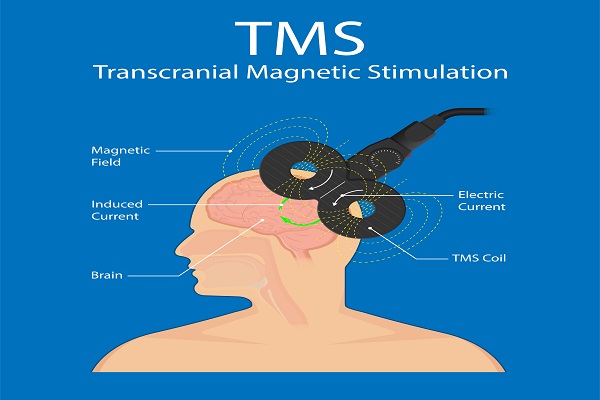What Advantages Does TMS Have Over Traditional Treatments For Depression?

TMS is quickly becoming popular ever since its official approval by the FDA as a viable treatment for depression. In contrast to medications and other conventional treatments for depression, TMS does not have unwanted side effects. The process is non-surgical and requires no sedation, as required with other depression treatments like deep brain stimulation. Continue reading to learn more about the advantages of transcranial magnetic stimulation over conventional treatments for depression.
The effectiveness of TMS
TMS has become more effective over the years as medical professionals discover newer treatment techniques and more accurate treatment points. Several studies are available to back the effectiveness of transcranial magnetic stimulation throughout the treatment phase and over the long term. For those who have attempted unsuccessfully to treat depression in the past with traditional methods like medications and electroconvulsive therapy (ECT), TMS has been proven to be an effective choice to consider.
Considering that up to 30 percent of patients dealing with depression are resistant to traditional antidepressants, Transcranial magnetic stimulation presents a worthy alternative. Studies have shown that between 50-60 percent of patients who are displeased with results from traditional treatments got relief from TMS. Therefore, TMS gives hope of recovery to patients with treatment-resistant depression.
Long-term results
The fact that the results of TMS last long after completing treatment makes the therapy different from other traditional treatments for depression. This is unlike medications, where patients must keep using them at defined intervals because stopping can increase the risk of relapse and discontinuation syndrome. Research shows that the results of TMS persist for a minimum of 12 months in 90 percent of patients.
Minimal or zero side effects
TMS is a non-invasive, focused therapy with a higher safety ratio than any antidepressant. Patients ingest medications, which go on to cause a diffuse and systemic response on the body. This often causes many unwanted side effects such as fatigue, drowsiness, fatigue nausea, sexual dysfunction, insomnia, and memory loss. Although TMS is not exactly free of side effects completely, being non-invasive makes it safe with fewer side effects that are mild and often disappear a few minutes after the treatment ends. Also, there are no reported long-term side effects, unlike other traditional treatments.
High success rate
The interesting fact about TMS is its high rate of success. The application of medications for treating depression has low chances of success if the first or second medication fails to provide needed respite. Several studies have shown that TMS has a success rate of up to 68 percent, compared to 37.5 percent for medications. Up to 90 percent of patients notice partial relief from significant symptoms.
Get TMS treatment for depression
TMS is a brain stimulation treatment for depression. However, before deciding on the procedure, it will be necessary to undergo an evaluation by a medical professional to know if you are eligible for TMS. If you are interested in the evaluation and treatment, contact the office to book an appointment.
Get more information here: https://nycpsychiatricassociates.com or call NYC Psychiatric Associates at (917) 391-0076
Check out what others are saying about our services on Yelp: Read our Yelp reviews.
Related Posts
While there is no cure for many long-term behavioral disorders, they may be successfully controlled with the right combination of therapy and other treatments. Behavioral issues such as obsessive-compulsive disorder, attention deficit hyperactivity disorder, and addiction disorders are prevalent nowadays.While there has been a lot of study into what causes behavioral disorders, including diverse fields…
Depression treatment can vary from patient to patient. However, all psychiatrists approach each patient with some basic techniques. These strategies can guide you through your depression treatment. Here are the details on how each mental health provider can guide you through your condition.The psychiatrist can prescribe antidepressants. These drugs can help correct the uneven chemistry…
Professional schizophrenia treatment is necessary due to the complexity of the mental health disorder. Psychiatrists characterize it as a range of hallucinations, delusions, jumbled thinking patterns, and sometimes a loss of emotional resonance or expressiveness. These are just some of the symptoms that make trying to manage the disorder independently nearly impossible and dangerous.Before developing…
Treatment-resistant depression is a leading reason patients seek antidepressant alternatives, but it is far from the only reason. Though typically a first-line treatment, antidepressants are not the only option and are not right for every patient. The following are some reasons these drugs may not work for you and alternative therapies a psychiatrist might recommend.In…


